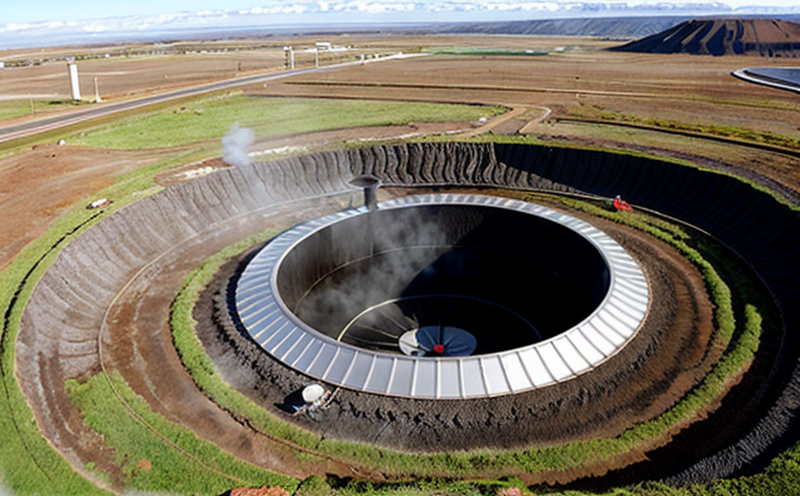ASTM D1293 pH Measurement Testing of Geothermal Fluids
In the realm of geothermal energy, the accurate measurement and control of fluid properties are paramount for optimizing system performance, ensuring safety, and extending operational life. This section focuses on American Society for Testing and Materials (ASTM) D1293 pH Measurement Testing of Geothermal Fluids. This standardized procedure is essential for quality managers, compliance officers, R&D engineers, and procurement specialists in the energy sector.
The ASTM D1293 test method provides a reliable means to measure the pH of geothermal fluids. Understanding these parameters helps in optimizing fluid chemistry, which directly influences heat exchanger performance, reducing scaling issues, and preventing corrosion in critical components such as turbines and piping systems. The precision required for this testing is crucial given the corrosive nature of many geothermal fluids.
The process involves collecting a representative sample from the geothermal well or production facility. The sample must be carefully handled to avoid contamination, which can skew test results. Once collected, the sample undergoes immediate pH measurement using a calibrated pH meter that meets ASTM D1293 specifications for accuracy and precision. This ensures compliance with international standards.
The importance of this testing cannot be overstated in various applications such as enhanced geothermal systems (EGS), binary cycle power plants, and direct use projects where water quality is critical. The results obtained help in making informed decisions about fluid treatment, which can significantly impact the longevity and efficiency of geothermal operations.
One real-world example involves a geothermal plant operating a binary cycle power generator. Accurate pH measurement helps in adjusting the chemical dosing regime to prevent scaling within the heat exchanger, thereby enhancing steam quality and improving overall system output. In another instance, optimizing fluid chemistry can lead to reduced maintenance costs by mitigating corrosion risks.
Another key aspect is ensuring that the testing methodology adheres strictly to ASTM D1293 guidelines. This includes using appropriate reference solutions for calibration checks and maintaining stringent laboratory protocols to ensure consistency across multiple samples from different wells or production sites.
Applied Standards
| Standard | Description |
|---|---|
| ASTM D1293 | American Society for Testing and Materials standard for the pH measurement of geothermal fluids. |
| ISO 8469-1:2015 | International Standard Organization guidelines for general requirements for laboratory quality assurance in analytical laboratories, applicable to this testing method. |
Scope and Methodology
| Test Scope | Description |
|---|---|
| Precision of pH Measurement | The test aims to achieve a ±0.1 pH unit accuracy, ensuring reliable data for decision-making. |
| Sample Collection and Handling | Geothermal fluids are collected from production wells using sterile sampling containers to avoid contamination. |
The methodology follows ASTM D1293 precisely. The primary steps include:
- Sampling: Collecting a representative sample of the geothermal fluid in a clean, dry container.
- Preparation: Ensuring the sample is at ambient temperature before measurement.
- Measurement: Using a calibrated pH meter to measure the pH value according to ASTM D1293 specifications.
The acceptance criteria for this test are based on the precision and accuracy specified in ASTM D1293. Any deviation from these criteria may indicate issues with sample handling or equipment calibration, requiring corrective actions.
Why Choose This Test
- Precision: Ensures accurate pH measurement essential for optimizing fluid properties and maintaining system efficiency.
- Compliance: Meets international standards, ensuring regulatory compliance in the energy sector.
- Cost-effectiveness: Prevents costly downtime by identifying potential issues early through precise monitoring.
- Safety: Reduces risks associated with corrosive fluids, enhancing operational safety for personnel and equipment.
The importance of pH control cannot be overstated. In geothermal operations, even small changes in fluid chemistry can have significant impacts on system performance and longevity. By choosing ASTM D1293 pH Measurement Testing, organizations ensure they are adhering to best practices that contribute to long-term sustainability and operational excellence.





